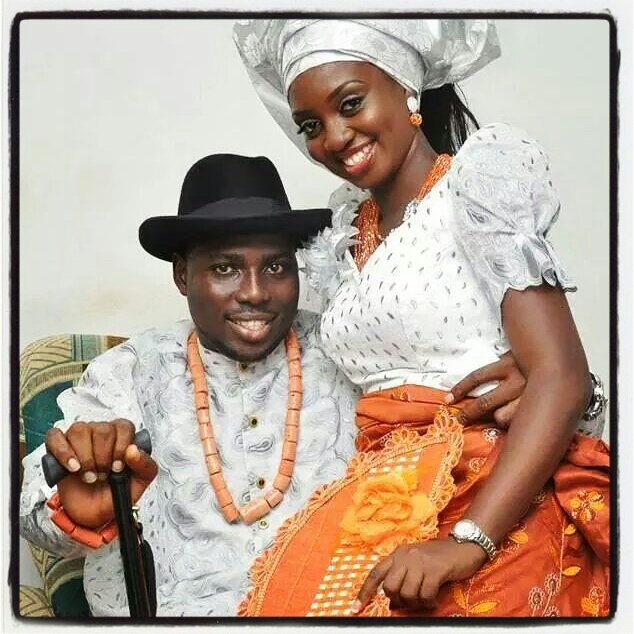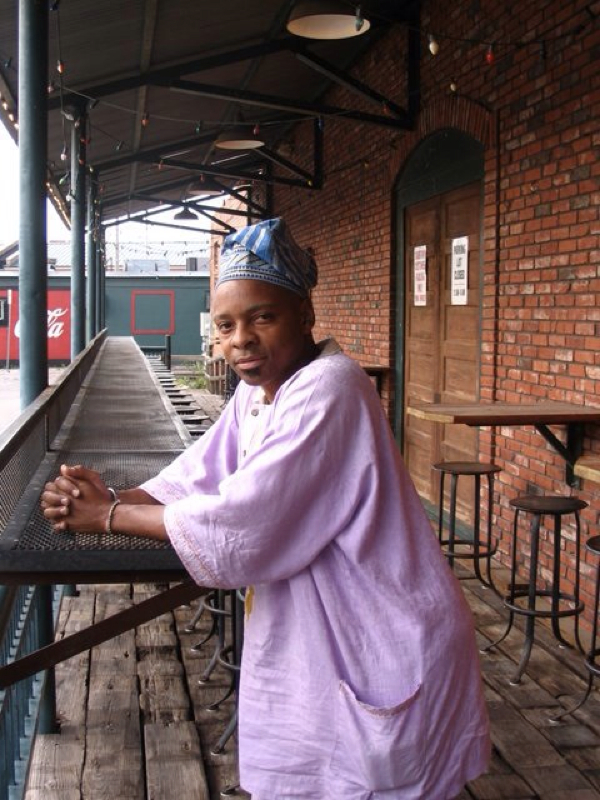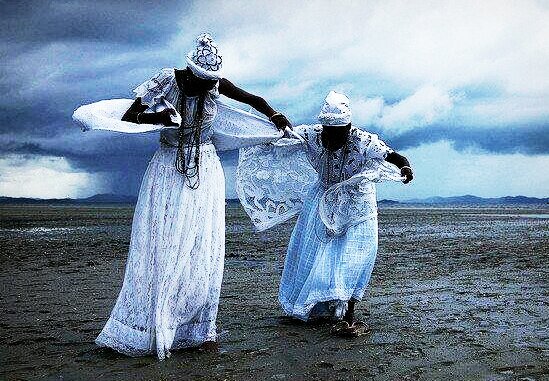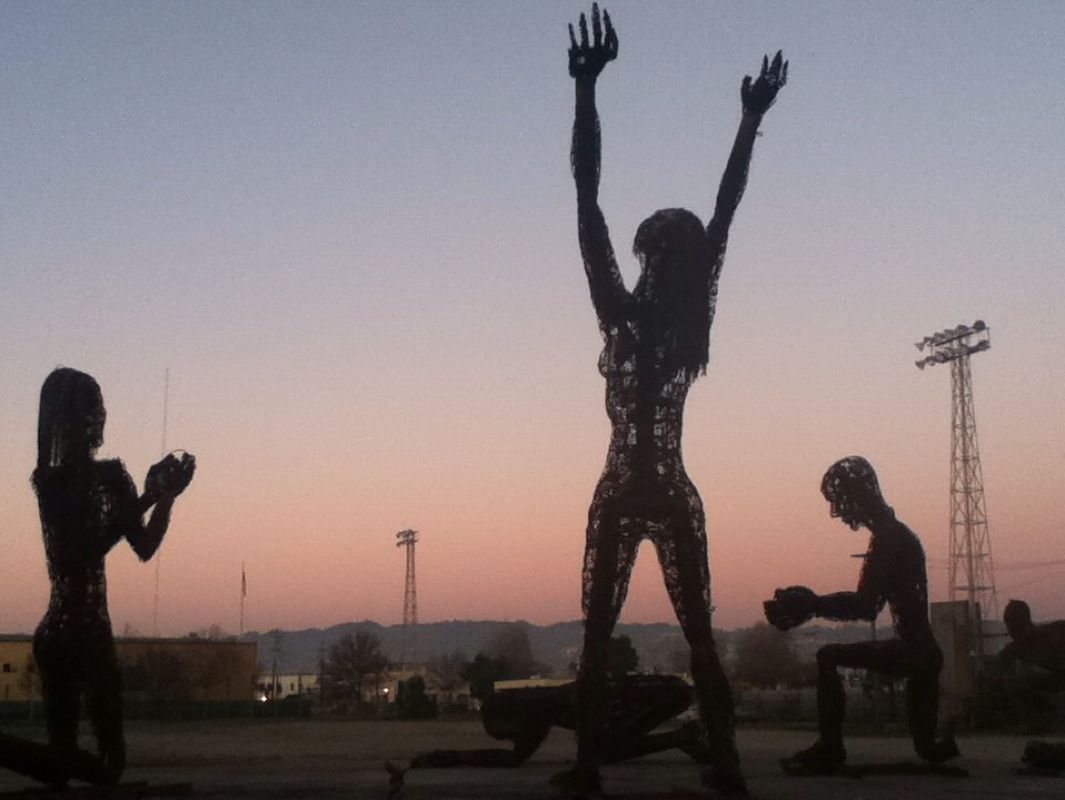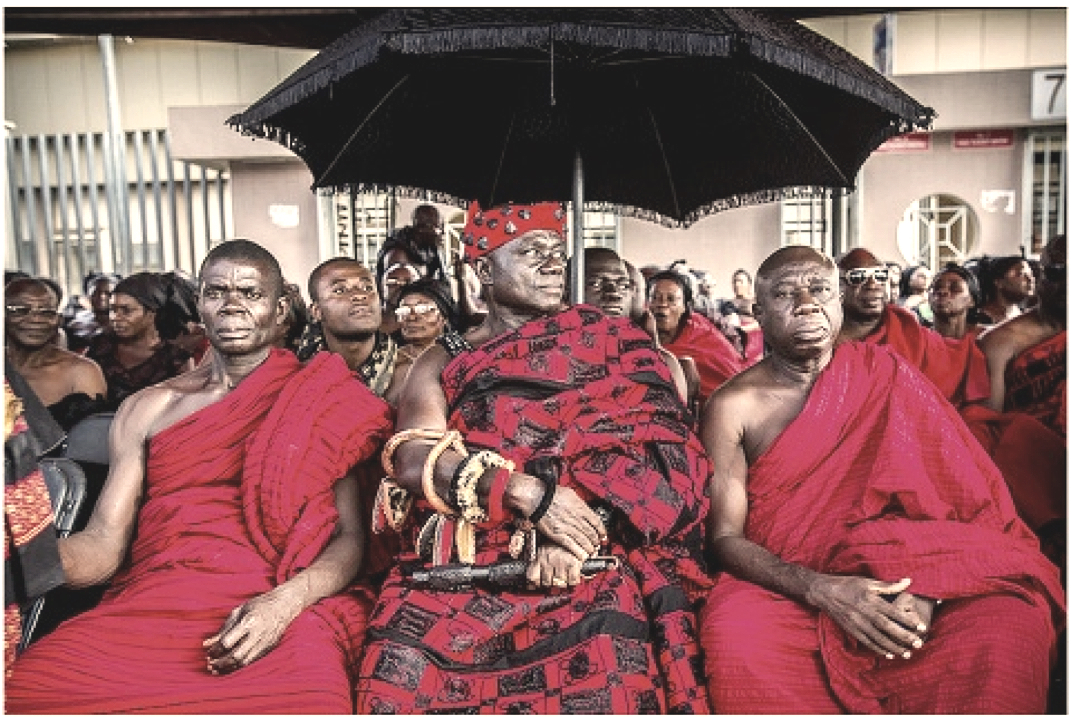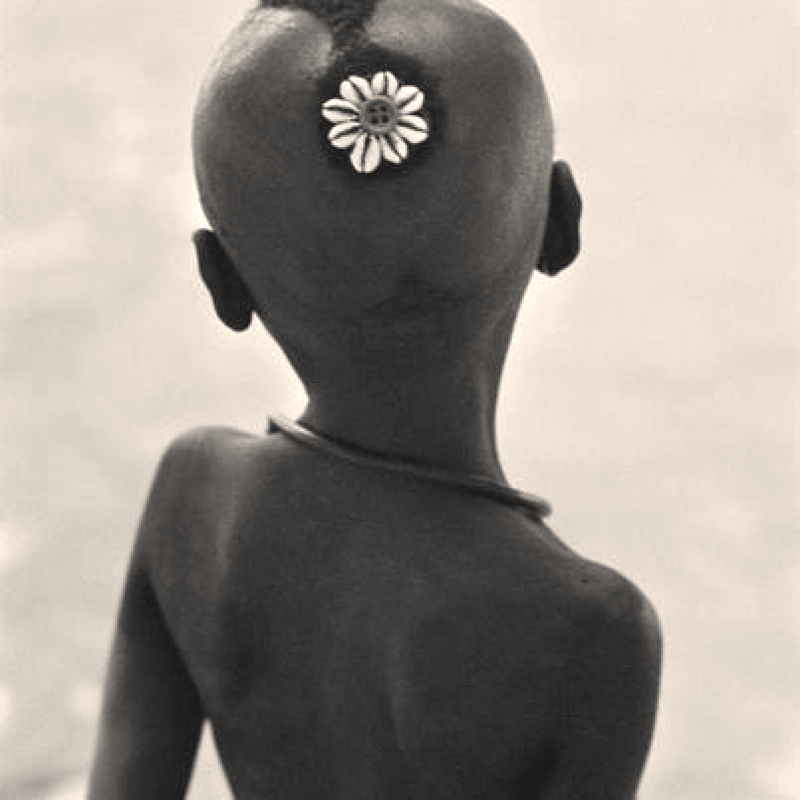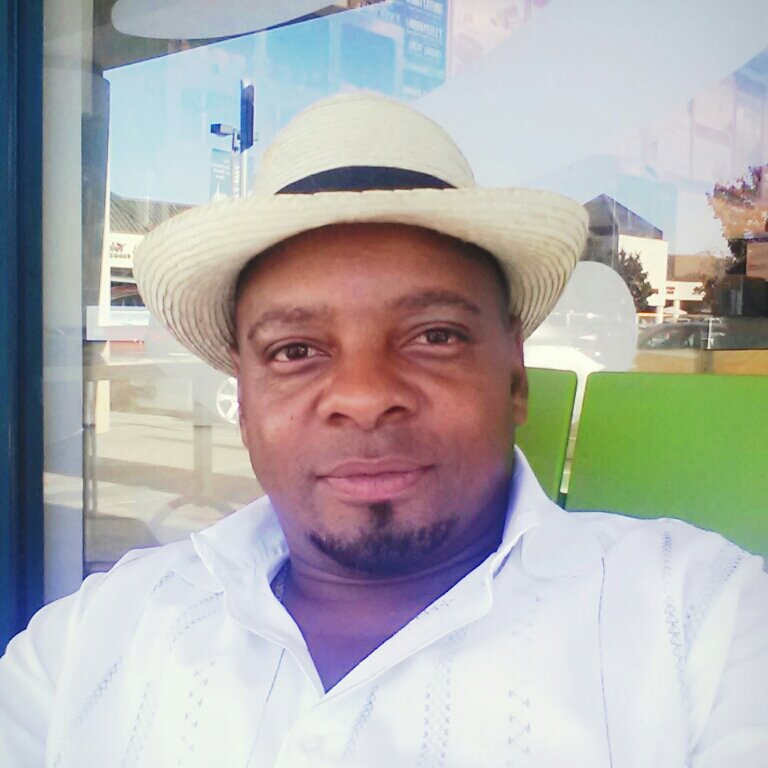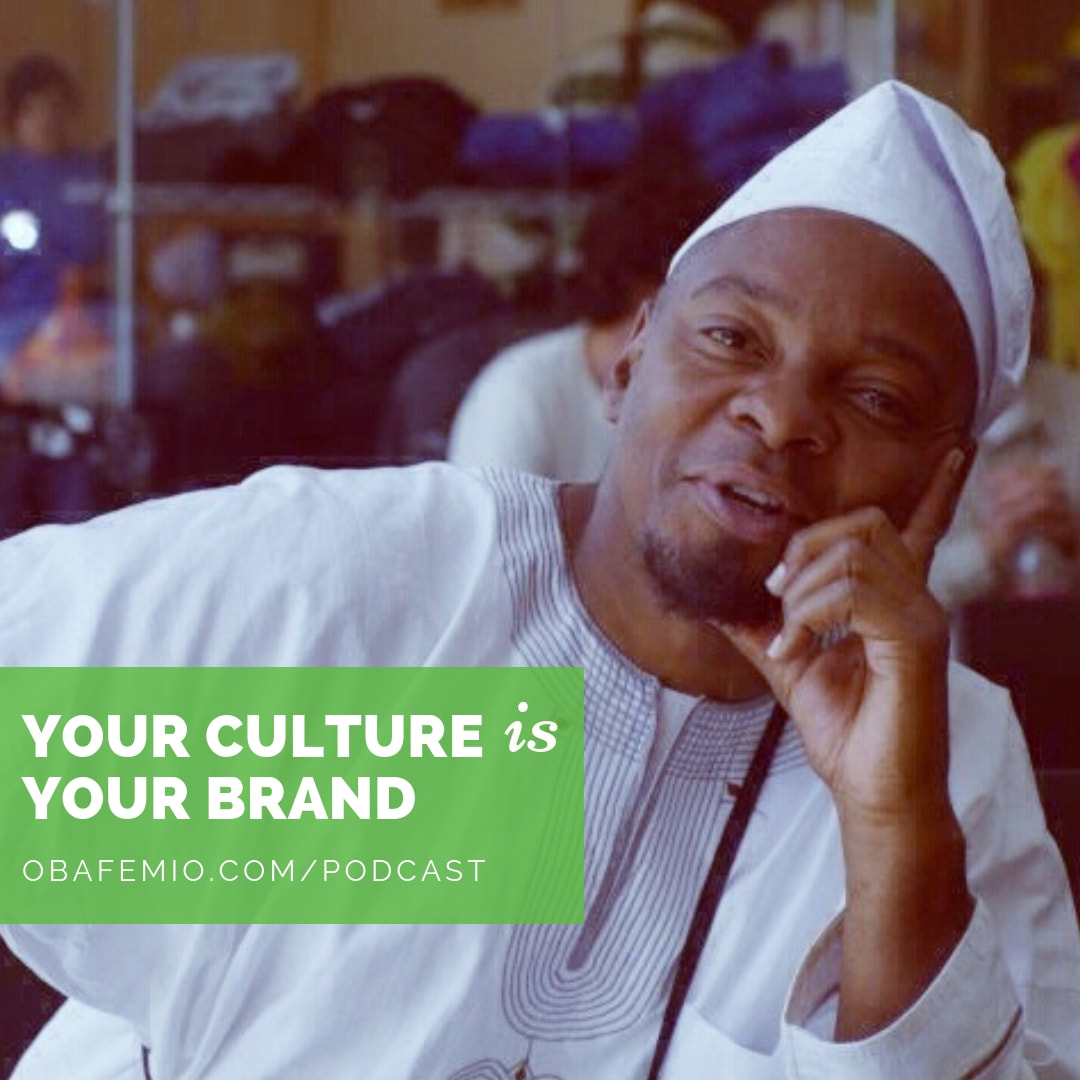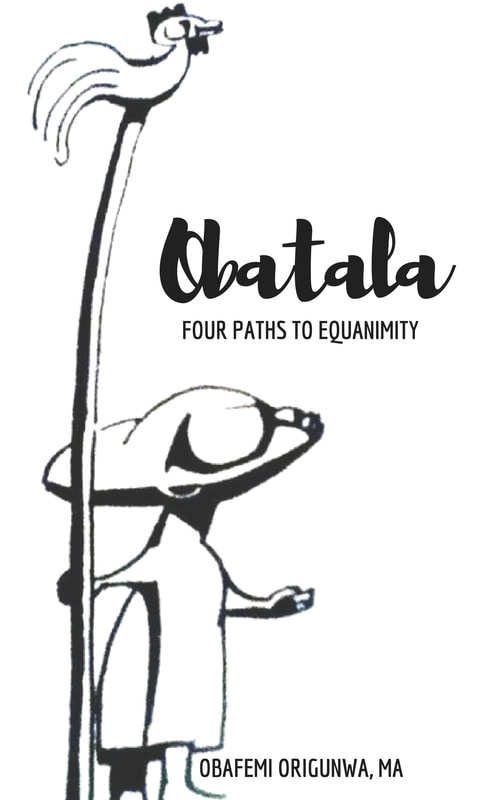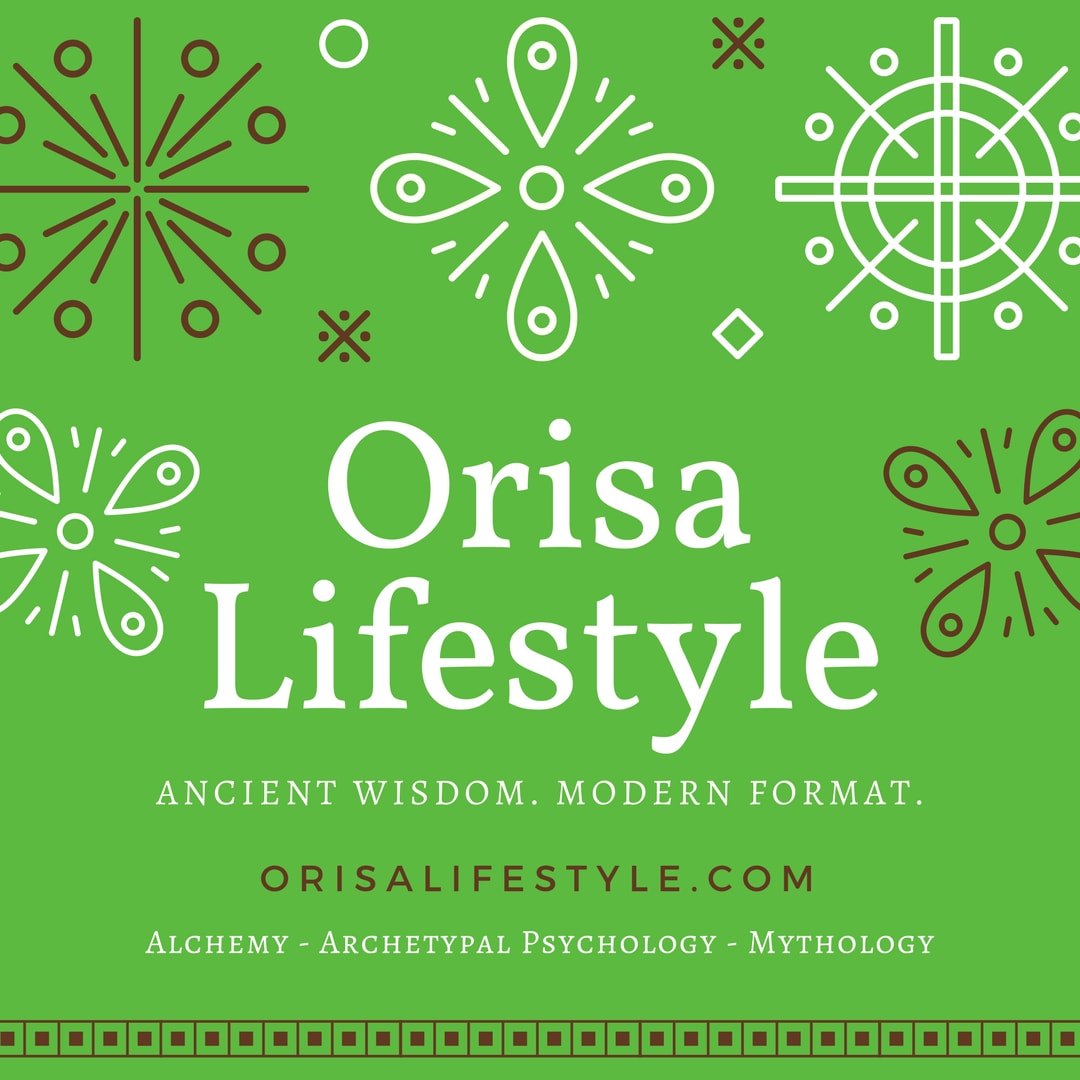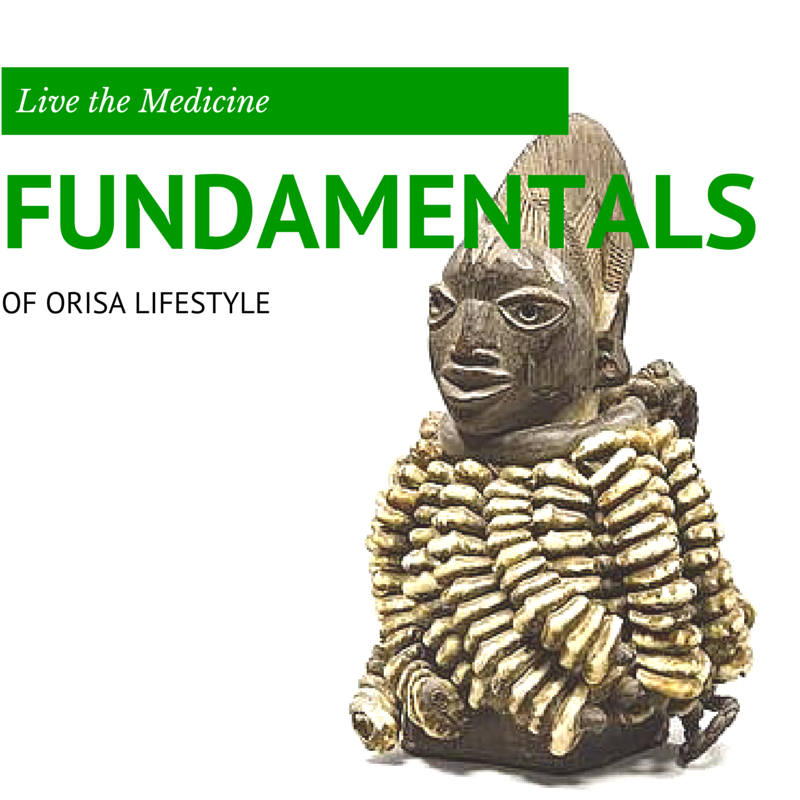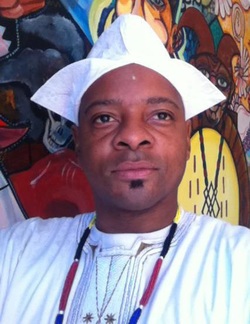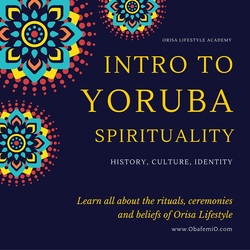|
Who the dog departs with is who the dog returns with. The stars never depart without the moon. When the snail moves, the shell moves along with it. Orisa Lifestyle is defined by loyalty and service. Any sustainable initiative will require the collection of people who are loyal to one another and loyal to the cause as well. Loyalty is a function of trust. It must be cultivated deliberately and reinforced diligently. Without loyalty you cannot succeed in Orisa Lifestyle.
If loyalty alone was enough, organizations, families and businesses would not crumble as quickly as they do. In addition to intense loyalty you need to surround yourself with people steeped in relevant expertise, which includes knowledge, training and skill. When we wish to know about weaving, we consult the weaver. When we wish to know about about carving, we consult the carver. Whatever is being done is known only by the doer. If you fail to attract and organize capable people, you cannot succeed in Orisa Lifestyle. As a Catalyst, you must practice discernment as you select people for your team. Each member must have varying degrees of loyalty and expertise, according to their assigned positions. This implies that you know the nature of each position necessary for a high performance team, be it a family, temple or business. Certainly, leadership is not a casual undertaking. 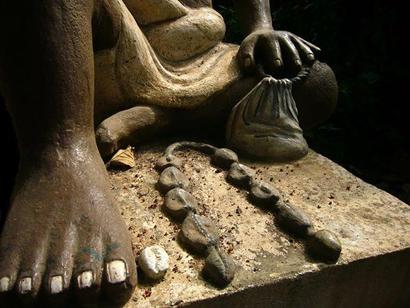 “Odù is the word of the Ifa oracle, the voice of the Supreme Being, as it pertains to the identity of each person who comes into existence. ‘Odù to bi enikan’ literally means the Odù which gives birth to someone. Each of us is born under the protection of particular Odù, which indicates our natural gifts and talents, as well as our prohibitions and liabilities. As the voice of Olodumare, Odù is the way that spiritual identity is traced and used to indicate the path of one’s spiritual journey. Odù is the ‘word of life’ given and entrusted – first to one’s parents, and later to one’s babalawo – as a measure of guidance for the one who has just made her entry into the world. In this regard, Odù represents one’s personal governance system, which is based upon an historical precedent or archetype. The Odù governance system enables birth parents and priests to anticipate varying degrees of personal experience, as well as the most appropriate response, relative to Ifa’s mandate that all human beings strive to bring about the Good Condition, both personally and collectively. In this regard, one’s personal Odù is akin to a spiritual hypothesis. It is neither a guarantee of success nor a condemnation to failure. An Odù is a framework of possibilities, a trajectory of human experience. No two individuals are identical. And so, the true meaning of one’s Odù is derived from APPLICATION. In other words, two people may be born – biologically or spiritually – under the same Odù but the significance of that particular set of rules has no meaning independent from the lifelong series of decisions, actions and developmental stages of the individual. Ultimately, Odù is merely potential. You must CREATE meaning by actively pursuing opportunities to make a contribution to the lives of those you serve. This is what it means to LIVE THE MEDICINE. “When the prince of Orangun Ila is poised to ascend the throne, he must first endure a hardship along the way. He goes before the Obaale, with whom he swears an oath to govern with wisdom and, if necessary, sacrifice his life for the well-being of the kingdom. Next, he journeys to the shrine of the Ebora (deities) of Ila, where is installed as the ALANWO, which connotes something forbidden, that which is taboo, or a place that cannot be entered. To be ALANWO is to be devoid of certain identity. Still, it is a prelude to the next three months, during which he will be gradually prepared for kingship. He will travel to a new house by night and become a stranger to his kin.’ Once he is formally installed as the Orangun of Ila, he will never be allowed to return to it. It is an experience that must be suffered, for ‘The head of the elephant is not a load to be carried by a child’. (Atari ajanaku kiise eru omode). Later on, he will meet in the house of ALASAN, where he will pledge allegiance to the unified royal houses of the kingdom, thereby identifying himself with the dynasty. Next, the ALANWO, along with the other heads of the royal houses of Orangun will proceed to the front of the palace to prostrate themselves before the town’s chiefs. This will be the last time the ALANWO will ever kneel for anyone. But the chiefs respond to his obeisance with hostility and abuse. The ALANWO and the other princes are insulted and harassed. Now, the twenty or thirty princes, along with the ALANWO are made to kneel before the crowd of townspeople. A chief, called Ejemu approaches each prince and asks the crowd ‘Se ohun ni?’ (Is this the one?). The crowd responds, ‘Hun hun! O nko!’ (No! He is not the one!’) The Ejemu repeats the process twice, each time skipping the ALANWO. Finally, he strikes the ALANWO hard upon the head and asks, ‘Se ohun ni?’ and the crowd roars a response, ‘Ohun ni! Ohun la yan!!!’ (Yes! He is the one! He is our choice!!!). Immediately, the princes lift the ALANWO onto their shoulders and carry him into the palace, where he is dressed in regal attire. The crown is placed upon his head. He reappears before the assembly, carrying the royal horsetail switch in one hand and the beaded staff of the Orangun in the other. The hunter fire shots into the air. Everyone bows, touching their heads to the ground and there are a thunderous cry, ‘Kabiyesi! Oba alaiye luwa!’ (Your highness! Ruler who owns the world and its wealth!). The Alanwo has ascended the throne and is transformed into the ORANGUN ILA!* May you endure the hardships that prepare you for great compassion and understanding. Ase! May you strengthen the strategic alliances between you and your supporters. Ase! May your head allow you to ascend the throne of your own destiny! Ase!” Obafemi Origunwa, MA | Ifa Divination (Dafa/ATS) Like & Share *John Pemberton. Yoruba Sacred Kingship “Kin ni a bo ru lebo? What is to be offered for the sacrifice? That is the pivotal question the babalawo asks during Ifa Divination. It represents the movement from theory to practice, from ideas to action. That is, once you have defined your problem, it is logical to define what must be done to solve it. Naturally then, your sacrifice must match your circumstances and desired outcomes. Are you willing to sacrifice your anger in order to experience true happiness? Are you willing to sacrifice your fear in order to enjoy true love? Are you willing to sacrifice conformity in order to experience true freedom?
The only true sacrifice is personal sacrifice. It is only through personal sacrifice that you will ever change, develop and grow in your spiritual practice. Of course, the materials you offer are necessary to activate your environment and set the stage for healing, in much the same ways that pharmaceuticals set the stage for physical health. But internal activation is what enables transformation. Internal activation is what Orunmila teaches us in the Holy Odu IworiMeji. In this instance his disciple went to Olodumare and accused Orunmila of failing to make sacrifice for him. When Olodumare summoned Orunmila and confronted him on his transgression, Orunmila explained how he had always made sacrifices for his disciple, but the latter’s ORI never arrived to accept the offerings. And so, his blessings went unclaimed. So, whereas prayer is asking for guidance, meditation is listening for instructions. Obedience is making the mental, emotional and spiritual changes necessary to follow the instructions you asked for in the first place. But it’s not as easy as following instructions, is it? Sometimes, the instructions seem unclear. Maybe you know where to go, but you’re not sure about how to behave once you arrive. Other times, you don’t even know where to start! And then, there are those times when you have face yourself, your character flaws, inconsistencies and inabilities. In all of those instances, you need spiritual support that extends far beyond mere technique. That is, when you’re serious about giving up the emotional, intellectual and spiritual traumas that may have enslaved your family lineage for generations, you need a trusted advisor who is adept at helping you define the problem and create an appropriate plan for addressing it, from the inside out. That is what I call living the medicine. Learn more about it at http://www.OrisaLifestyle.com”; Obafemi Origunwa, MA | http://www.ObafemiO.com Two enemies ram one person - Holy Odu OgundaOtura If you can count just one person as your friend, consider yourself fortunate. May we remain loyal to those who truly love us. May we count on Ogun as a reliable supporter. Ase! Can you name an orisa that does not give children? How about one that does not bring wealth? Or how about an orisa that does not defend and protect its devotees? I assure you that you will not find any such orisa. Likewise, can you tell me an odu that has nothing to do with long life? Or an odu that does not define a path to victory? An odu that does not address human destiny? I don't know them all, but I am certain that you will never find such an odu. What does this mean to you?
It is so very unfortunate that people have dumbed down their practice to the point of over simplification. It is no wonder we are inundated with so much confusion over the most basic aspects of Orisa Lifestyle. Whenever we are exposed to the real truth about exactly how expansive our tradition is, we become overwhelmed by internal questions that refute everything we thought we knew about Orisa Lifestyle. Most of us would rather cling to a comforting lie than take a chance on an inconvenient truth. For example, there is the linguistic fantasy. We get infinitely creative about interpreting isolated Yoruba vocabulary words in a desperate effort to prove some kind of obscure cultural position. This seems to be particularly appealing to people who don't want to be Yoruba, per se, but they love the products of Yoruba civilization and have not been able to eliminate them from the conversation altogether. The best they can do is use Frankenstein linguistics to piece together a grotesque culturo-linguistic monster. Then, there is the Afro-hippie movement. Here, anything goes. Orisa Lifestyle is seen as an African alternative to the oppressive, male chauvinist, individualist, WASP world. So, anything that is perceived to be in opposition to the mainstream is supposedly welcome and celebrated in Orisa Lifestyle. These are the people who assume that orisa is somehow obliged to accept them, as they are, now matter what. They want to be accepted but only on their own terms. In their minds, none of the rules apply to them: They don't have to learn the language or adhere to gender roles or follow instructions. Some don't even have to be initiated in order to have license to practice. This is a class of people who want timeless tradition without any of the obligations that actually sustain the tradition. Finally, we have the conciliatory enablers. These are the ones who know better but refuse to tell. They are well-versed in the language and culture, yet they allow the inaccuracies to continue. They seem to listen with both ears and speak out of both sides of their mouths. This particular group of people are the most important to understand. Contrary to how you might feel about their social psychology, their ethics and values, they are gatekeepers of precious knowledge and rare technical skills. But their logic is not quite as simple as the apparently contradictory information they dole out. To illustrate, please consider this verse and story of the Holy Odu Iretengbe: Somuroga Awo Ewi Sawolololo Awo Oke Ijero Aparijajoogun Awo Ewi Awon meteeta ni won nsefa fun Ewi Olo Omo asiyun sorun bawon jo gbedu Won l'Ewi o lowoo, Ewi lowo Won l'Ewi o l'obinrin, Ewi l'obinrin Won l'Ewi o kole, Ewi kole... Here, Ifa teaches us of Ologbojigolo, the genius awo of Ilawo town. As it were, the three awo mentioned above had been the king's diviners for many years. On this fateful day, they predicted wealth, wives and homes for Ewi, the king. But the Ewi also wanted a child. They recited numerous verses but could not find one that defined the way to children. And so, they went in search of an awo who knew the appropriate verse of Iretengbe. They were advised to find Ologbo Jigolo, the awo of Ilawo town. When they found him, he was ready to recite the verse on the spot but the awo stopped him, preferring to let him tell it directly to the Ewi. Ologbo went before the Ewi and recited the verse. Then he solved the problem and the king made him a rich man that day. Later on, the Ewi's friend, the king of Apa was threatened by war from Oyo kingdom. And so, the Ewi sent his diviner, Ologbo Jigolo to assist. Ologbo transformed every blade of grass into Apa soldiers. They defeated Oyo and again, Ologbo was compensated generously by the king. But Oyo kingdom was not pacified so easily. They also consulted Ifa to know the secret of Apa's success in battle. The babalawo told the Alaafin to capture the awo named Ologbo Jigolo in order to conquer Apa. To do so, the Alaafin was required to send his own daughter, Isokunronke, along with a basketful of obi abata into Apa. The night before she arrived, Ologbo Jigolo had a nightmare. He consulted Ifa and advised the king of Apa that a beautiful woman would come selling obi abata and that she should be totally ignored. As predicted, Isokunronke arrived and everyone ignored her, except... Ologbo Jigolo himself! He was smitten by her beauty and bought kola from her. He eventually married her there in Apa, and she gave him twins. It was later on that Ologbo and his wife were chatting comfortably, sipping wine, that she casually asked him the secret of Apa's success in battle. Without thinking, he told her the secret and the way to defeat the soldiers made from grass. The very next day, Isokunronke packed herself and the children and fled towards Oyo. Ologbo however awakened and prepared an incantation that immobilized her in her tracks before she arrived at Oyo. She begged him and explained her desire to protect her family. He felt compassion for Isokunronke and restored her legs, then escorted her into Oyo. The king received them happily. The princess quickly explained the way to defeat Apa and no time was wasted before the war drums sounded. The people of Apa tried to invoke the grass to become soldiers, but in vain. And so, Oyo conquered Apa and the king was beheaded, according to custom. As a final test, the Alaafin called all babalawos to see the covered calabash, which held the king of Apa's head. He asked them to disclose the contents, using Opele. One by one they tried and failed. It was finally the turn of Ologbo Jigolo. He cast opele and the Holy Odu Iretengbe appeared and he declared: Even if I don't know how to cast ikin Ifa in my palm, Even if I don't know how to print odu Ifa with iyerosun I can boldly say that the head of Alapa is inside the calabash. Ologbo Jigolo was honored by the king and given a house which stands today in Oyo kingdom.* There are many lessons to learn here. But I wish to merely highlight the position taken by Ologbo Jigolo. Likewise, it is important to emphasize the fact that, while Oyo and Apa were at war with one another we are not. And so, it is more wise for us to approach Ifa in a more uniform fashion, with a shared vision in mind. This vision does not allow for cutting corners or practicing a religion of convenience. Our mission is to bring about the Good Condition. Anything that compromises that must be rejected. * Agboola, Awodiran. Ifa Ohun Ijinle Aye. Page 88 Ori is one of the most celebrated principles of Orisa Lifestyle. In fact, you cannot overstate its importance to one's spiritual development. It should come as no surprise then, that every aspect of divination, sacrifice, worship and initiation revolves around ori. This is what justifies the oriki that says, "Ori is the one that carries the load. Without ori, the rest of the body is for naught. Ori, the supreme lord of all."
However, as much as we celebrate ori, we overlook some of the details surrounding the various facets of the indwelling deity, whose protection is greater than that of orisa. That is, there are at least 8 different facets of ori. They include kadara, akunlegba, ayanmo and others. Some facets of ori devotion are rather esoteric and provoke deep philosophical thought. For example, what is ori's relationship to rebirth, ancestry and personality? How is it possible to select ori in heaven before one's identity is even established? Is ori representative of the soul or the spirit? Is it better understood as destiny or fate? These are the kinds of questions one must contemplate within herself and with knowledgeable teachers, versed in the wisdom of Ifa. For now, let us give thought to a forgotten and overlooked aspect of ori devotion. It is called adaiyeba, which "that which we encounter in the world." It refers to that aspect of ori devotion that is profoundly spiritual, but not esoteric at all. The elders say, "we chose our destinies in heaven; it was not until we reached the world that we became impatient." It means that you are already filled with the deep spiritual essence you so desperately seek. So why all the frantic scrambling for titles, power and position? People will recite this proverb to remind you that your very nature is heavenly, and therefore in perfect order. Be patient. Practice effortless control. This is the essence of adaiyeba. The question, however, is "How?" Here are three ways you can start to improve your ori devotion through adaiyeba:
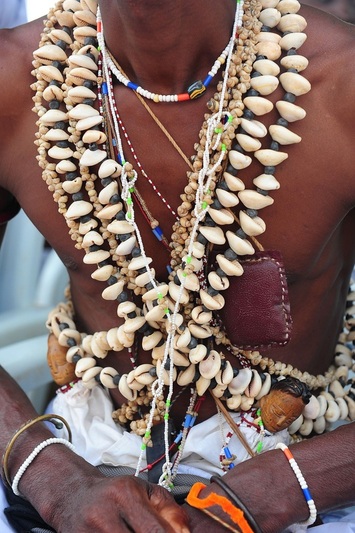 "Protective charms, amulets and powders are important parts of Orisa Lifestyle. There is a spiritual remedy for everything, from impotence to incarceration. And while some of these medicines will take effect, no matter what, the vast majority come with certain behavioral requirements. These are commonly referred to as taboos. But I like to call them observances because taboos only point to the things you CANNOT do, which is a bit misleading when it comes to these charms. That is, in addition to the things you cannot do, there are other things that you MUST do in order to guarantee the effectiveness of the medicine. Sometimes, you have to tell the truth. Other times, you have to perform certain rituals at specific hours of the day or night. This is why the elders will say, Take the medicine according to the exact instructions of the herbalist. It might not make any sense to you. But it doesn't really have to appeal to YOUR sense of reason. You have gone to the healer in search of his specialized knowledge and skill. Why should you question his expertise? By extension, the same thing is true of Orisa Lifestyle as a whole. We see countless generations of tradition across West Africa and we want to participate in it, but we insist upon doing it according to what we WANT to do, as opposed to what we're SUPPOSED to do. Everything, from learning Yoruba language to seniority to gender roles, is subject to interpretation and renegotiation in this day and age. But the tradition is a complex prescription, which was written with the intention to HEAL. How do you expect to ignore the prescription and live the medicine at the same time? Learn more at the Orisa Lifestyle & Mental Health Retreat www.orisalifestyle.com/retreat" The elders discourage talkative habits. The idea seems to be that, the more you talk the more likely it is that you will either lie or commit an error. This is particularly challenging for people with the gift of gab. When words come easily, you will naturally tend to rely upon them as frequent as possible. Obafemi Origunwa, MA | www.ObafemiO.com 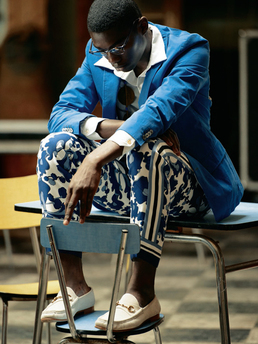 It has been said that people will forget what you said. They will even forget what you did. But they will always remember how you made them feel. Even more importantly, how you project your own feelings has the greatest impact on how people feel about you. Toxic emotions -like fear, anger and jealousy – create toxic feelings. Nurturing emotions – like happiness, pleasure and compassion – create nurturing feelings. But as tempting as it is to seek only people and situations that promote nurturing emotions, that is a guaranteed failure. Instead, you will be much more successful at learning to transform negative emotions into positive feelings. When your emotional muscles are strong, you can successfully meet the demands of life. When they are weak, your emotions wreak havoc in all aspects of your life. If you lack patience or confidence, for example, you already know this. It is very important to build emotional capacity in order to improve the quality of your personal, professional and spiritual relationships. Like all personal energy, you manage emotional capacity by practicing rituals that balance emotional expression and emotional recovery.
Live the medicine. |
Live the MedicineObafemi Origunwa, MAThought leader, Ifa priest and author of four definitive books, Obafemi Origunwa inspires metamorphosis through living the medicine that will heal your life and heal the lives of the people you're destined to serve. 
Raise Awareness

Internalize Principles

Embody Truth
|
